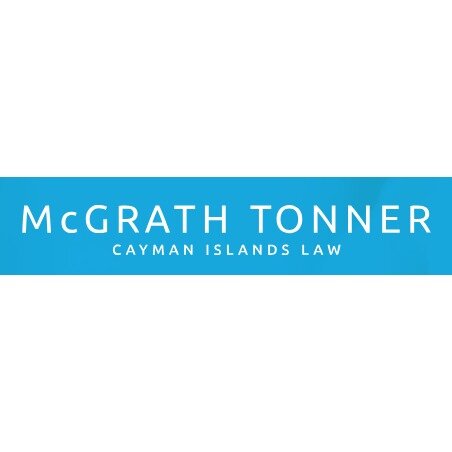Best Appeal Lawyers in George Town
Share your needs with us, get contacted by law firms.
Free. Takes 2 min.
List of the best lawyers in George Town, Cayman Islands
About Appeal Law in George Town, Cayman Islands
Appeal law in George Town, Cayman Islands, involves the judicial process where a higher court is requested to review the decision of a lower court. The appeal process is essential for ensuring legal fairness and addressing potential errors made in the initial trial. In the Cayman Islands, the judicial system supports a structure of appeals that allows for both civil and criminal cases to be reviewed, with appeal hearings conducted by higher courts, including the Court of Appeal and the Privy Council.
Why You May Need a Lawyer
Seeking legal assistance in appeals may be necessary in several situations. You might need a lawyer if you believe there has been a legal error in the trial court’s decision, if new evidence has emerged, or if you feel that your legal rights were not fully represented or violated during the proceedings. Lawyers specializing in appeals can analyze the trial court's decision, identify grounds for appeal, and represent you effectively through the complex process of the appellate system.
Local Laws Overview
The legal framework governing appeals in George Town is based on statutes and precedents from both local and English Law. Key aspects include a structured timeline for filing an appeal, the necessity of obtaining leave (permission) for certain types of appeals, and adherence to strict procedural rules. The George Town Court of Appeal has jurisdiction to hear appeals from the Grand Court and has defined parameters governing civil and criminal appeal cases. Additionally, the Privy Council, based in London, serves as the final court of appeal for the Cayman Islands.
Frequently Asked Questions
What is the typical timeline for filing an appeal?
The timeline for filing an appeal usually depends on the nature of the case but must generally be filed within 21 to 28 days after the decision in question. It is crucial to act quickly and consult a lawyer to navigate these deadlines properly.
Do I always have a right to appeal?
Not all decisions can be appealed automatically; some appeals require leave from the court. It often depends on the type of case and whether significant legal questions are involved.
What are the costs associated with an appeal?
The costs can vary widely depending on the complexity of the case, legal fees, and additional costs such as transcript preparation and court fees. Engaging a lawyer will provide a clearer idea of potential expenses.
How does the appeals process work?
The process generally starts with the filing of a notice of appeal, followed by the preparation of the trial record and written briefs. Oral arguments may be scheduled, where both parties present their case to the appellate judges.
Can I represent myself in an appeal?
While self-representation is allowed, navigating the complex appellate procedures without legal expertise can be challenging. Professional legal representation is usually recommended.
What happens after an appeal is successful?
If an appeal is successful, the appellate court may reverse or modify the decision or remand the case back to the lower court for further proceedings consistent with the appellate decision.
What is the role of the Privy Council in the appeal process?
The Privy Council serves as the highest appellate court for the Cayman Islands, where certain cases can be further appealed beyond the local Court of Appeal.
What grounds are sufficient for an appeal?
Sufficient grounds for an appeal can include legal errors, procedural mistakes, insufficient evidence supporting the trial decision, or new evidence becoming available.
What happens if an appeal is denied?
If an appeal is denied, the lower court’s decision stands. In some cases, further appeal to a higher court may be possible, depending on the jurisdiction and legal merits.
How long does it take to resolve an appeal?
The time to resolve an appeal can vary depending on the complexity of the case, the court's schedule, and any procedural issues that may arise. An approximate timeframe can range from several months to over a year.
Additional Resources
The Cayman Islands Legal Practitioners Association (CILPA) offers guidance and has a directory of qualified legal practitioners. Additionally, resources are available through the Cayman Islands Courts Office, which provides information on filing procedures and court services. The Judicial Department of the Cayman Islands also hosts useful information regarding appeals on their official website.
Next Steps
If you require legal assistance for an appeal, the first step is to consult with a qualified attorney experienced in appellate law. They can evaluate the specifics of your case, provide legal advice on the merits of an appeal, and assist with the intricate filing procedures. It may also be beneficial to gather all relevant documentation, such as trial transcripts and court decisions, to facilitate a thorough case evaluation. Engaging a professional early can significantly impact the outcome and ensure adherence to all procedural necessities.
Lawzana helps you find the best lawyers and law firms in George Town through a curated and pre-screened list of qualified legal professionals. Our platform offers rankings and detailed profiles of attorneys and law firms, allowing you to compare based on practice areas, including Appeal, experience, and client feedback.
Each profile includes a description of the firm's areas of practice, client reviews, team members and partners, year of establishment, spoken languages, office locations, contact information, social media presence, and any published articles or resources. Most firms on our platform speak English and are experienced in both local and international legal matters.
Get a quote from top-rated law firms in George Town, Cayman Islands — quickly, securely, and without unnecessary hassle.
Disclaimer:
The information provided on this page is for general informational purposes only and does not constitute legal advice. While we strive to ensure the accuracy and relevance of the content, legal information may change over time, and interpretations of the law can vary. You should always consult with a qualified legal professional for advice specific to your situation.
We disclaim all liability for actions taken or not taken based on the content of this page. If you believe any information is incorrect or outdated, please contact us, and we will review and update it where appropriate.

















